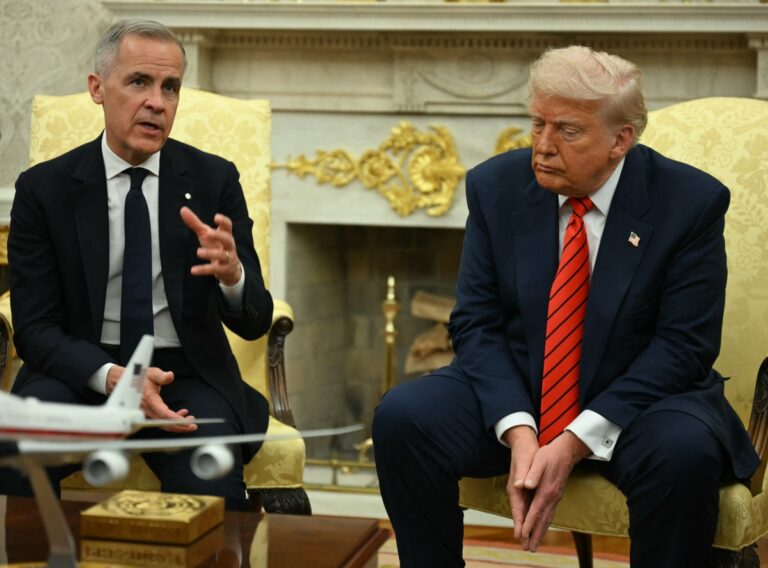By Peter Omopo
In a tense first meeting at the White House on Tuesday, Canadian Prime Minister Mark Carney firmly rejected U.S. President Donald Trump’s suggestion that Canada could one day become the 51st state, declaring that his country was “never for sale.”
During the Oval Office talks, which started with cordial remarks but quickly shifted to uncomfortable exchanges, Trump reiterated his long-standing notion of a political and territorial union between the two North American neighbors.
“It would be a wonderful marriage,” Trump said, suggesting that Canada joining the United States would be beneficial for both sides.
Carney, however, offered a swift and pointed rebuttal.
“As you know from real estate, there are some places that are never for sale,” he told Trump, likening Canada to historic landmarks like Buckingham Palace and the Oval Office. “Having met with the owners of Canada throughout the campaign in the last several months, it’s not for sale. It won’t be for sale, ever.”
“Never say never,” Trump responded, brushing off the comment.
The meeting came amid heightened tensions over trade, tariffs, and national sovereignty. Trump’s imposition of tariffs on Canadian goods has triggered a trade standoff, and his repeated proposals for Canada to become part of the U.S. have drawn sharp rebukes in Ottawa.
Carney, who won Canada’s April 28 election on a platform promising to stand up to Trump, remained composed but visibly tense at moments during the meeting, gripping his hands and bouncing his knee as the U.S. president spoke.
While both leaders expressed an openness to negotiating a new trade agreement, major sticking points—particularly on U.S. tariffs on Canadian automobiles—remained unresolved.
When asked whether Carney could say anything to change his stance on the car tariffs, Trump flatly replied, “No. It’s just the way it is.”
As Trump again floated the idea that Canadians might eventually support joining the U.S., Carney interjected firmly.
“Respectfully, Canadians’ view on this is not going to change on the 51st state,” he said.
Despite the occasional light-hearted remark and show of mutual respect, the meeting underscored the ongoing challenges in U.S.-Canada relations under Trump’s second term.

